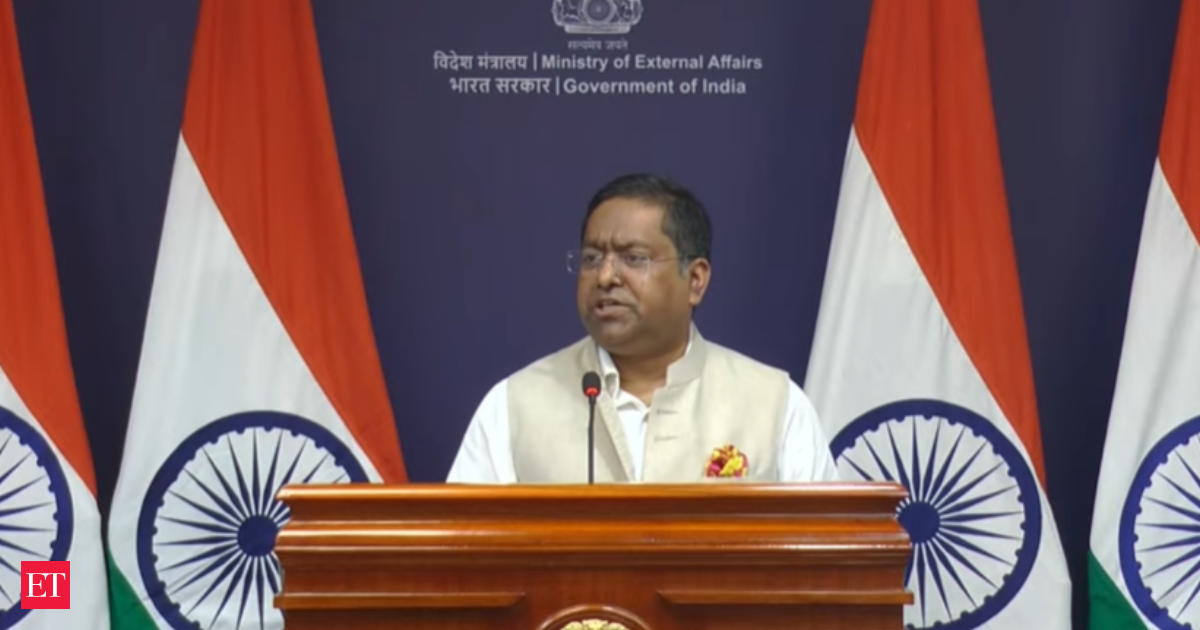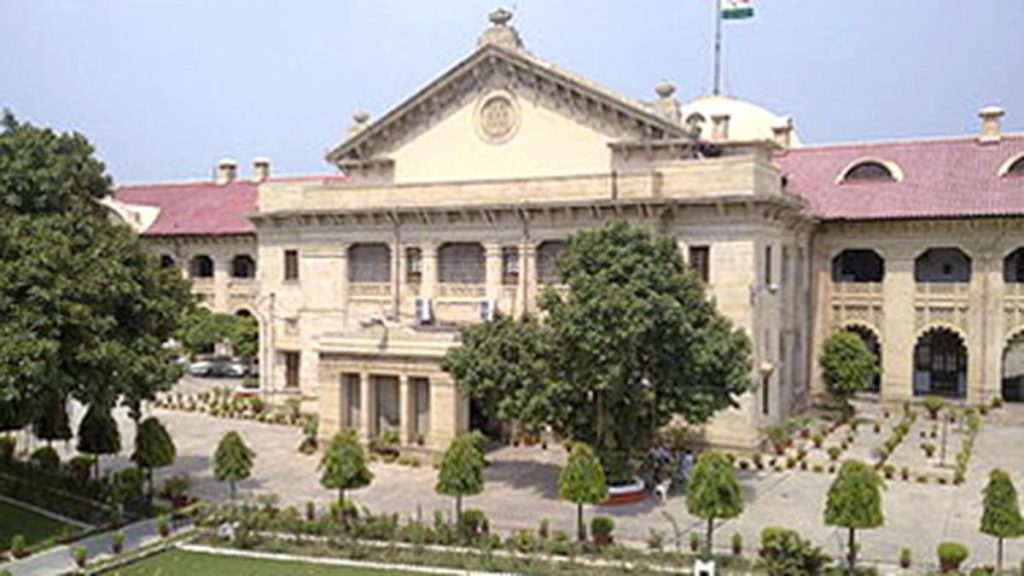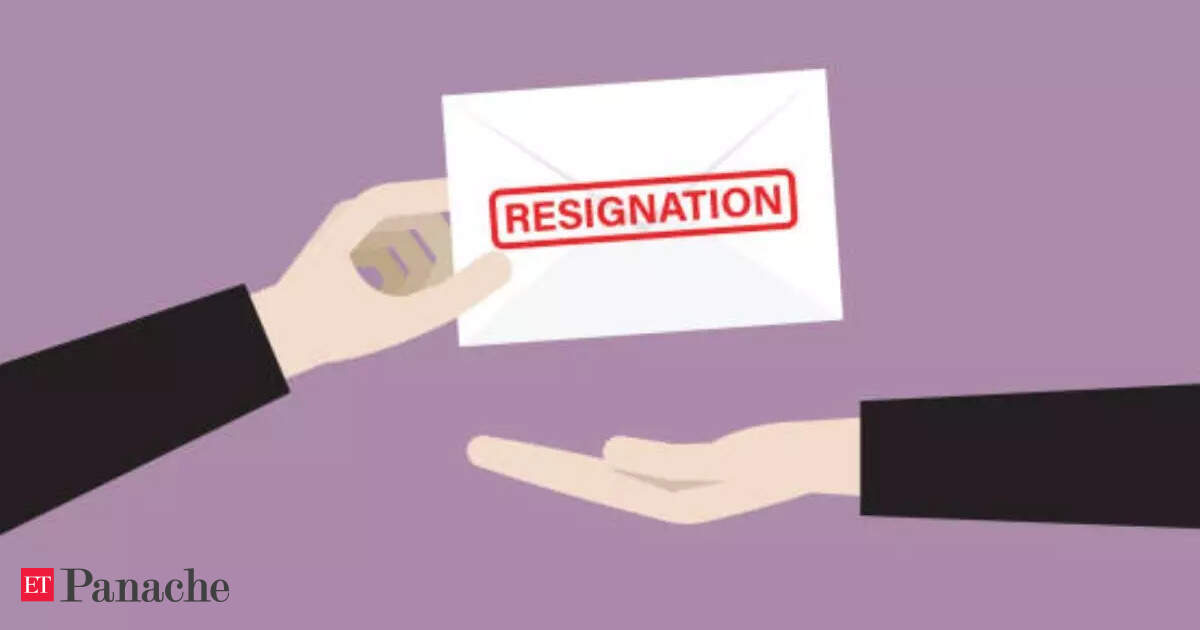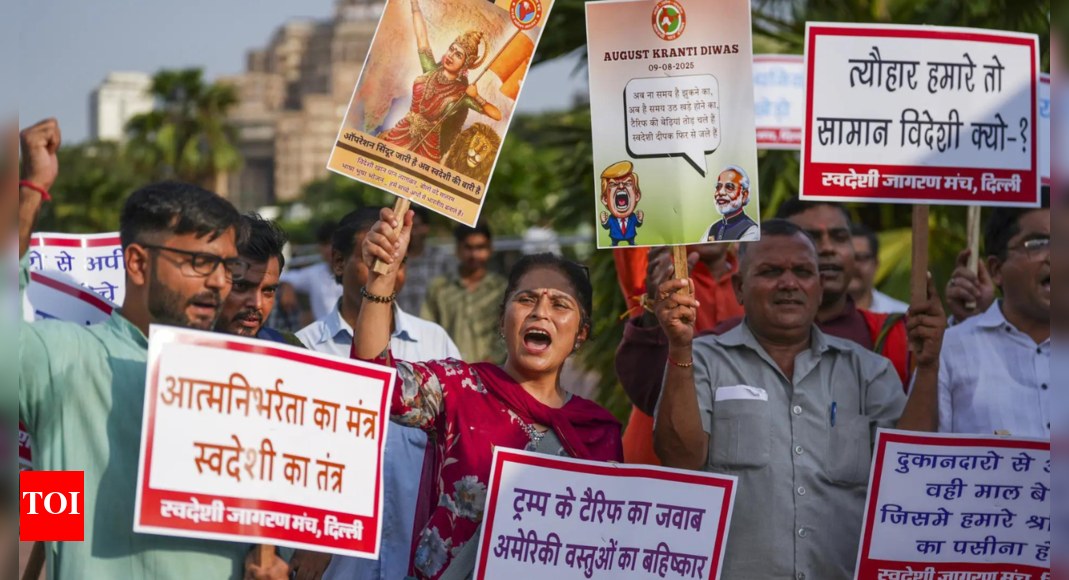Now Reading: MEA Refutes Trump Aide Navarro’s ‘Misleading’ Claims
-
01
MEA Refutes Trump Aide Navarro’s ‘Misleading’ Claims
MEA Refutes Trump Aide Navarro’s ‘Misleading’ Claims

Swift Summary
- the Ministry of External Affairs (MEA) of India refuted recent statements made by Peter Navarro, a trade adviser too former US President Donald Trump, calling them “inaccurate and misleading.”
- MEA spokesperson Randhir Jaiswal emphasized the strong strategic partnership between India and the US, based on shared interests, democratic values, and people-to-people ties.
- Navarro accused Indian refiners of profiting from discounted Russian crude by reselling processed oil products abroad at higher prices.
- He also claimed that India’s trade policies disproportionately favor exports to the US while restricting American goods in return, labeling India as “Maharaja of tariffs.”
- Navarro acknowledged Prime Minister Narendra Modi as a “great leader” but criticized India’s growing ties with Russia and China despite being a major democracy.
- Trump further expressed concern over India-Russia-China relations on Truth social: “We’ve lost India and Russia to deepest, darkest China.”
- MEA reiterated its commitment to advancing substantive trade relations with the US through platforms like the Quad Summit.
Indian Opinion Analysis
The sharp rebuttal from India’s ministry of external Affairs reflects New Delhi’s broader effort to emphasize its independent foreign policy amidst criticisms linking it closely with Moscow or Beijing. By highlighting robust democratic values shared between India and the united States alongside deeper strategic partnerships under frameworks like Quad cooperation, MEA aims to dispel narratives questioning India’s global alignments.
Navarro’s remarks could signal underlying tensions in Indo-US trade dynamics. While his characterizations may oversimplify complex issues such as tariff policies or energy commerce amidst geopolitical shifts triggered by sanctions on Russia, they indicate sustained scrutiny over such matters even beyond Trump’s presidency. However, public recognition from both sides regarding mutual respect offers hope for overcoming differing perceptions through dialog.
This incident underscores how external rhetoric can test bilateral partnerships built over decades but also reaffirms their resilience when grounded in long-term diplomatic commitments.




























